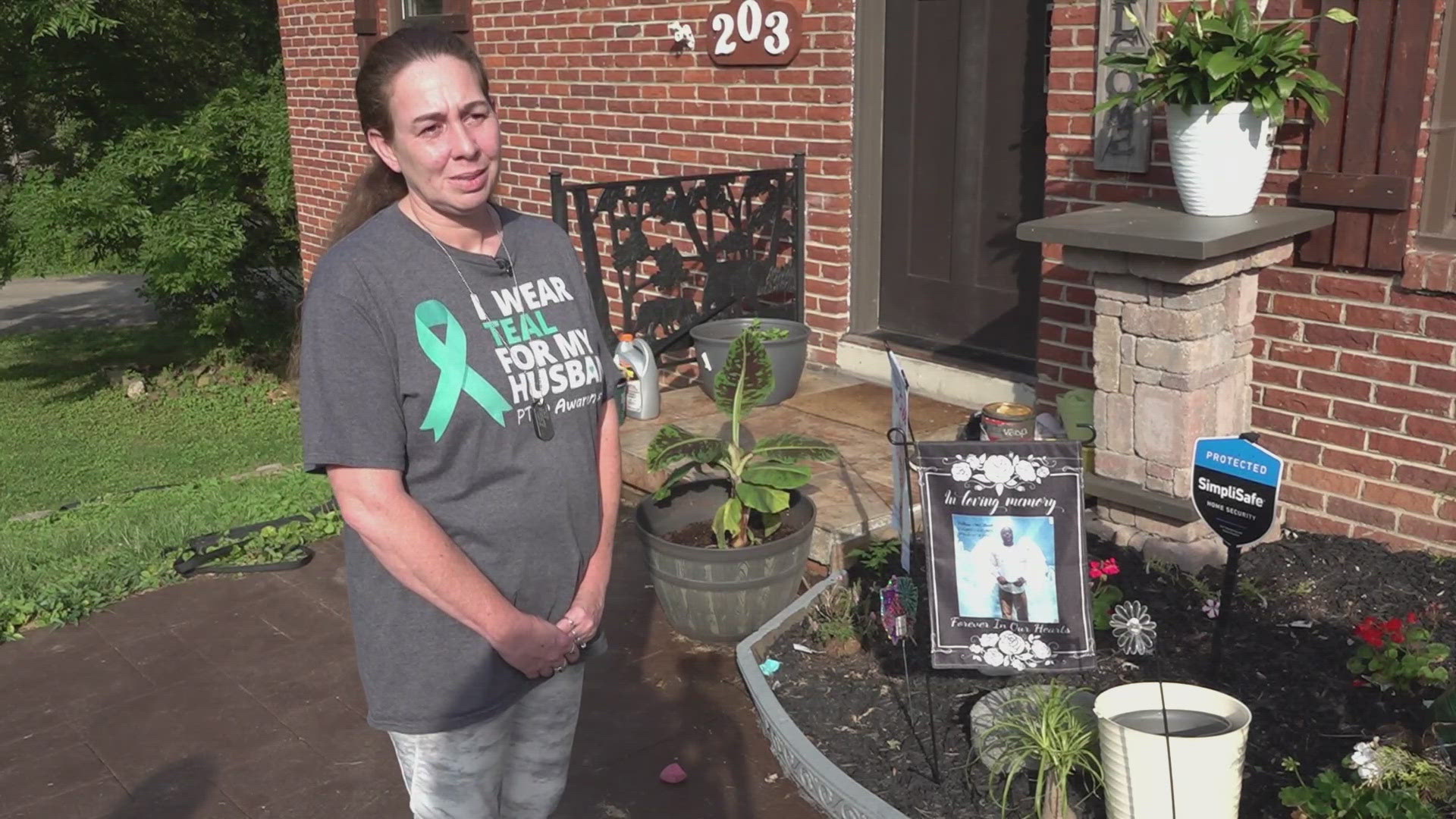KNOXVILLE, Tenn. — A woman is calling for the community to help military veterans who have PTSD. Her husband was fatally shot by police while she said he was in the midst of a PTSD episode.
On April 17, officers responded to a call for help at a Fountain City gas station about a man acting erratically and "potentially violently." There, an officer found William McBride Jr. armed with two knives. After he lunged out of the store, he was fatally shot. His wife said after returning home from his tour in Iraq, he would have flashbacks to his time on the battlefield.
"He said ti was pretty awful. He wouldn't want to go back — have to go and kick down doors and kill families. It's what hurt him the most," said Elisha McBride, his wife. "He was trying to hide from them. He could still hear them coming. He could still smell the gun smoke, and them trying to kill him."
She said she still wears the same dog tag that her husband once wore.
"He's in my heart all the time," she said. "The VA only keeps them for about three months, and right back on the street they go."
The U.S. Department of Veteran's Affairs said veterans who served in Iraq and Afghanistan are more likely to be diagnosed with PTSD than those who served in The Persian Gulf, Vietnam, Korea and during World War II.
It also said PTSD is more common among men who served than women who served. It also said trauma can come from more places than just combat.
"There are a lot of things that people deal with in the military that may not have been a combat trauma," said Kelsey Burns, with the McNabb Center’s Military Services ."People might call it anxiety. People might call it being overwhelmed by crowds, or loud noises."
The McNabb Center offers mental healthcare services to active duty service members and veterans. The center said people often return home feeling on edge, or unsafe. Counselors said healing starts by asking for help.
"There is a path to healing, and from there, really just trying to listen. And, that doesn't take a therapist," said Burns.
Meanwhile, Elisha is continuing to grieve the loss of her husband and is working to raise awareness about PTSD among veterans.
"If I was there that day, I would have took the bullet for him," she said.
Anyone struggling with PTSD, regardless of whether they served, can reach out to the McNabb Center for help. A hotline for crisis services is available at 865-539-2409.

